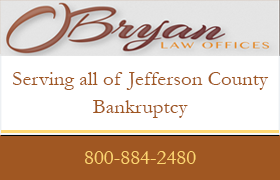Fisherville Collection Lawyer, Kentucky
-
Sponsored Law Firm
-
 x
x

Click For More Info:
-
Obryan Law Offices
9311 Preston Hwy Louisville, KY 40229» view mapBankruptcy Lawyers That Fight For You
Obryan Law Offices has helped thousands of families restore peace and order to their lives. Call us today!
800-884-2480
LaShea Borden
Collection, Consumer Bankruptcy, Credit & Debt, Estate Administration
Status: In Good Standing
FREE CONSULTATION
CONTACTMichael W. McClain
Business Organization, Products Liability, Collection, Banking & Finance
Status: In Good Standing
FREE CONSULTATION
CONTACTDavid Clifton Travis
Corporate, Personal Injury, Collection, Estate Planning
Status: In Good Standing
Charles F. Merz
Construction, Corporate, Administrative Law, Collection
Status: In Good Standing Licensed: 40 Years

 Julie Obryan Jefferson, KY
Julie Obryan Jefferson, KY About UsObryan Law Offices
About UsObryan Law Offices FAQFrequently Asked Questions
FAQFrequently Asked Questions
